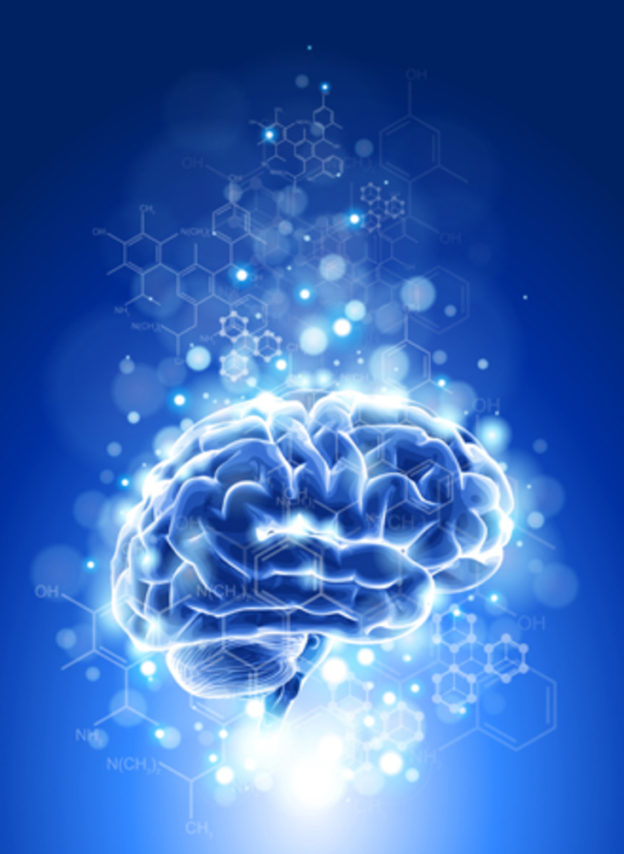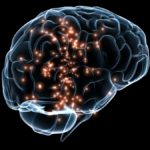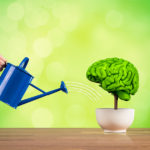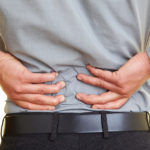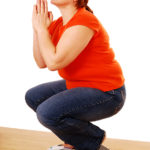By David Blyweiss, M.D., Advanced Natural Wellness
April 13, 2018
- The biggest threat to your brain health
- Slash your risk of dementia
- Simple trick for an even bigger brain boost
One of the biggest aging concerns among my patients is the possibility of developing dementia in their later years. And for good reason! The idea of living without all of your mental faculties intact is just downright scary.
Now I’ll be the first to tell you that a nutrient-rich diet, good sleeping habits, weight management and your ability to control stress levels all go a long way in protecting your brain function.
Staying active and engaged, learning new things and varying your daily routines also help keep your brain firing on all cylinders.
But there is one, single thing that may carry the most weight of all – and it’s something that many people fail to make time for…
Exercise to Take 10 Years off Your Brain Age
MD Exposes the Hidden Danger to Your Eyes

When your eyesight starts to fail, it's a real problem. Suddenly you can't go to the grocery store... you can't get to the doctor if you have an emergency... you can't meet your friends for dinner…
Your "regular" doctor doesn't have time to keep up with the latest research. And the same goes for eye doctors. They go to school to learn how to fit you for glasses and contacts, but have no way of preventing the damage and loss of eyesight that threatens your freedom and independence.
Let me show you something that explains a LOT about how your eyes work.
In my FREE Special Report, I'll show you a HUGE, untapped resource for your eyes that safely and naturally restores clear, effortless eyesight.
Click here to get started...
Everyone knows that regular physical activity is good for their body. It builds strong muscle, reduces fat mass, protects the heart, reduces the risk of stroke and helps ward off diabetes.
What many people don’t realize is that exercise is also a great weapon when it comes to preventing dementia and Alzheimer’s disease.
It nourishes your neurons, decreases beta amyloid plaques and increases the size of your hippocampus, the area of your brain that is critical in making short term memories into long term memories. It also increases something called BDNF, brain derived neurotrophic factor. This protein encourages the growth of new neurons and improves their function.
So it’s no wonder that people who get the highest levels of physical activity in their mid- to later years have brains that are 10 years younger than those with the lowest levels of activity.
And here’s something that will amaze you.
Back in the late 1960’s a group of middle-aged women took bicycle exercise tests. They peddled until they were exhausted.
Some women couldn’t finish the test because of chest pain or blood pressure issues. Those who did finish the exercise were ranked as having either low, moderate or high levels of fitness.
The World's Quickest Solution for Ending Prostate and Urinary Misery
This has recently been revealed to be one of the only real breakthroughs in prostate health.
The seeds of a strange fruit (sometimes called "Chinese Apples") hold powerful phytonutrients that are a revolution in prostate health.
In fact, UCLA and Veterans Administration research have now proved this to be true.
Not only that, but it may be the worlds quickest solution for ending prostate misery.
Simply stated, these phytonutrients represent a huge step beyond beta sitosterol, saw palmetto, and other phytosterols alone.
Simply click HERE if you want to have fast prostate relief...restful, uninterrupted sleep...no more constant "urges to go"...enhanced virility...and optimal prostate support for life.
Well. Fast forward 44 years and guess what? The highly fit women were 88% less likely to develop dementia than the moderately fit women!
| Fitness level on test | Dementia risk |
| High | 5% |
| Moderate | 25% |
| Low | 32% |
| Could not finish test | 45% |
Source: Physically fit women nearly 90 percent less likely to develop dementia. Press Release. American Academy of Neurology. Mar 2018.
Simple Trick for an Even Bigger Brain Boost
For top-notch fitness and mental health, I recommend taking part in regular high-intensity-interval training, or HIIT. You can learn all about how HIIT works right here.
I also suggest getting an even bigger brain-boost to your workouts with a simple trick. Just take beetroot juice about an hour before your workout.
Beetroot is extremely high in nitrate, which increases the production of something called nitric oxide in your body. This is a compound that relaxes your blood vessels so you can get more blood flow to the parts of your brain that need it the most. In particular, it fuels the white matter in your frontal lobes… an area of the brain associated with dementia and mental decline.
Now here’s the thing.
If you drink beetroot juice about an hour before you exercise, it can increase your brain connectivity to a level that’s more commonly seen in younger adults. In particular, the combination of beetroot juice and exercise appears to strengthen a region of the brain that often shows changes in the early stages of Alzheimer’s disease.
Just 500 ml (480ml is a pint) of beetroot juice is all you’ll need, about an hour before exercise.
If you find the taste unpleasant, you can use a supplement instead. Just look for a plant-based NO enhancer that has beetroot juice as its main ingredient. (These plant-based formulas vary from one manufacturer to another, so make sure to choose the one that gives you the biggest bang for your buck.)
SOURCES:
Head D, et al. Exercise Engagement as a Moderator of the Effects of APOE Genotype on Amyloid Deposition. Arch Neurol. 2012 Jan 9.
Erickson KI, et al. Exercise training increases size of hippocampus and improves memory. Proc Natl Acad Sci U S A. 2011 Feb 15;108(7):3017-22.
Willey JZ, et al. Leisure-time physical activity associates with cognitive decline, The Northern Manhattan Study. Neurology.
Hörder H, et al. Midlife cardiovascular fitness and dementia. Neurology, 2018. Epub ahead of print.
Petrie M, et al. Beet Root Juice: An Ergogenic Aid for Exercise and the Aging Brain. J Gerontol A Biol Sci Med Sci. 2016 Nov 9.

